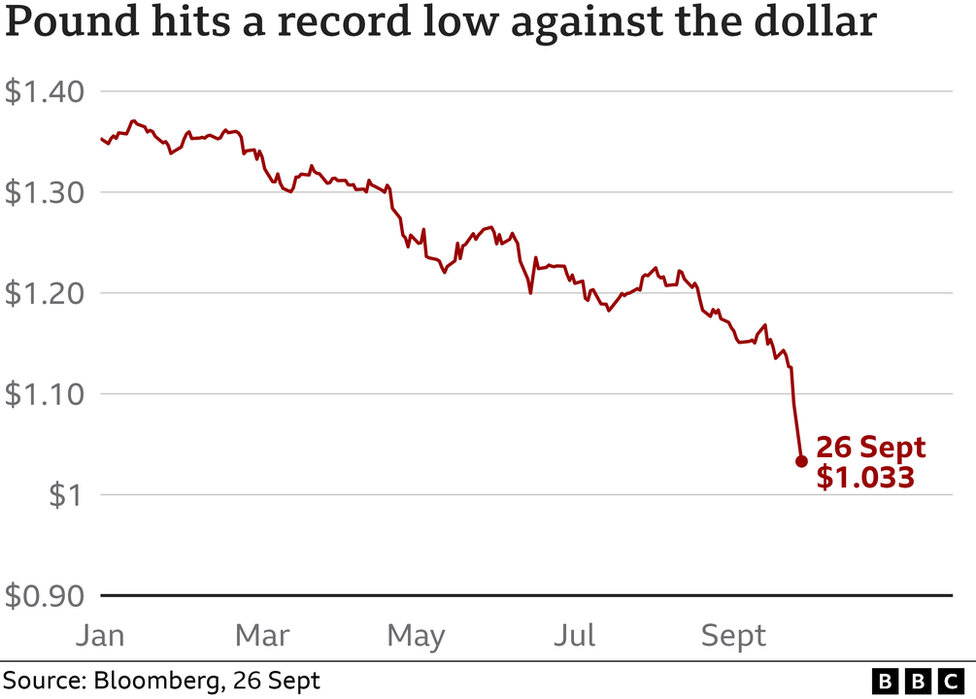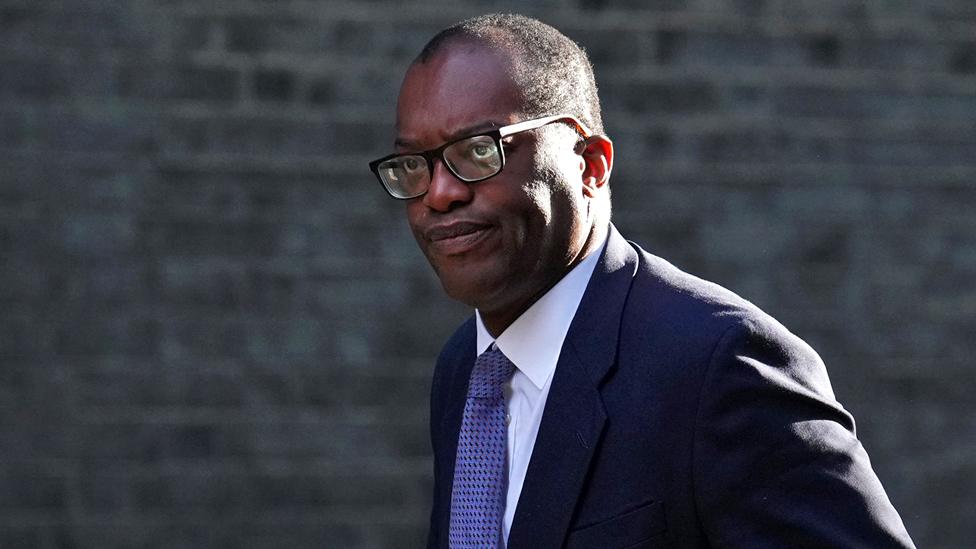Scottish exporters cautious over fall in the pound
- Published

Leonard Russell says his firm will have to increase its prices for exports
This week's dramatic fall in the value of the pound might seem to be a boon for Scotland's exporters, so why are many firms reacting cautiously to the news?
Leonard Russell describes the record low hit by the pound against the dollar on Monday as "disturbing".
He ought to be delighted at sterling's relative weakness against the dollar and the euro because his company, Broxburn-based Ian Macleod Distillers, exports spirits such as Glengoyne, Tamdhu and Edinburgh Gin around the world.
But his response is rather muted.
"Obviously the weak pound will be good for exports and, as somebody in the whisky and gin market, that is welcome," he told BBC Radio Scotland's Drivetime programme.
"The low value of the pound is going to help exports and will help us absorb some of the very large cost-inflationary pressures we are about to suffer from, particularly energy."
But Mr Russell says his company will have to put its prices up to cover increased costs.
"We are paying people more because of inflation, so our labour costs are going up and our energy costs are going up," he explains.
"Malted barley is made by germinating barley, so there's quite a large energy input into the cost of our barley, which is also going to increase.
"That means we will have to increase our prices for exports, but then the weakness of the pound will negate that for some of our customers overseas.
"I don't know how much we are going to have to put prices up by because we haven't got a proper cost for energy next year."

The Scotch Whisky Association, which found that exports of whisky grew by 19%, to £4.5bn, in 2021, is also taking a cautious approach to the weak pound.
The industry body argues that it "looks at the pressures facing the economy in the round, not just through the lens of the current currency fluctuation".
A spokesman adds: "The pound is only one part of the story, with the industry facing increasing energy, supply chain and distribution costs.
"A recent survey of the industry found that 57% of distillers have seen energy costs increase by more than 10% in the last year, with nearly a third (29%) seeing their energy costs double.
"Nearly 40% of businesses reported shipping costs doubling in the last 12 months, with 43% also reporting supply chain cost rises of more than 50%."

Golf tour operator Gary Wilkinson says the currency fall sends "a positive message that it is great value to travel to Scotland"
Gary Wilkinson, whose Dunfermline-based company Wilkinson Golf offers foreign visitors golf tours around the UK and Ireland, tells BBC Radio Scotland that "on balance", the stronger dollar is good for business - given that many of his clients are based in the US.
"I think it is a positive message that it is great value to travel to Scotland.
"I think we have got a chance to try and attract more business that wouldn't normally come. There will be more inquiries from America and it is down to us to convert these into bookings.
"However, the net effect is much the same - what the Americans are saving in the exchange rate is offset really by the amount of increase in input prices across the board - the prices we pay for golf courses, for hotel accommodation, car rental and so on."
Meanwhile, Scottish Engineering chief executive Paul Sheerin says there is "more caution than optimism" in his industry over the tumbling pound.

Paul Sheerin says many firms have concerns over rising input costs
He points out that many firms will have concerns about substantial rising input costs, particularly where materials are derived from petrochemicals such as plastics and coatings, or where market rates for imported items used for manufacturing are often set in dollars, such as steels and alloys.
"There are also many Scottish companies who won't benefit from the weakness in the pound because they manufacture products here, which are then passed on to other parties in the UK before being exported," he says.
Mairi Spowage, director of the Fraser of Allander economic institute, adds: "Given the pound has been devalued against the euro and the dollar, it will make our goods and services seem cheaper by comparison abroad.
"But you have to remember that a lot of the things that go into goods produced for export has been imported, so it can make it more expensive for exporters to produce."
- Published26 September 2022

- Published26 September 2022

- Published11 February 2022
